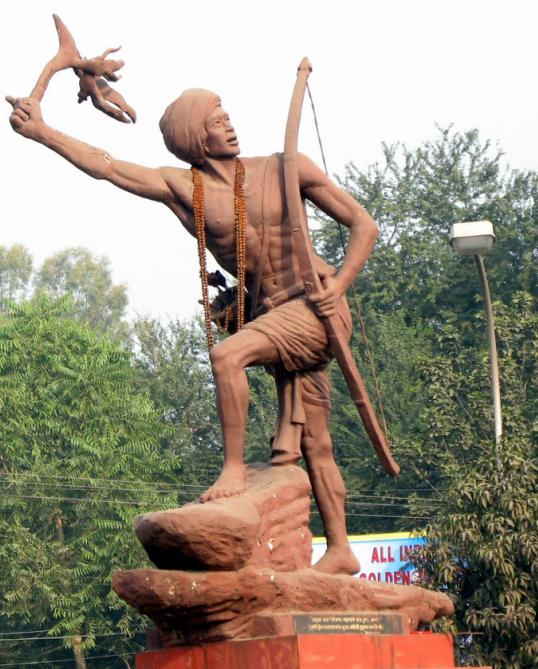Jharkhand Switch to Hindi
Birsa Munda
Why in News?
The Lok Sabha Speaker Om Birla visited the Jail Museum in Ranchi, Jharkhand, on 25th May 2025 and paid tribute to Bhagwan Birsa Munda.
- The visit aimed to honor Munda’s contribution to tribal rights and cultural heritage.
Key Points
- About: Birsa Munda was a tribal freedom fighter, religious reformer, and folk hero, who played a key role in tribal resistance against British rule in India.
- Early Life:
- Birth: Born in Ulihatu on 15th November 1875, now in Jharkhand's Khunti district, to a poor sharecropper (sajhadar) family.
- Community: Belonged to the Munda tribe, a major Adivasi community of the Chotanagpur plateau.
- Early Name: Daud Munda, after his father briefly converted to Christianity.
- Education and Early Influences:
- Attended local schools under the guidance of Jaipal Nag.
- Studied at a missionary school and later at BEL school in Chaibasa for four years.
- Was influenced by Christianity but later rejected it due to cultural and religious differences.
- Influenced by Vaishnavism and Anand Panre (a munshi), leading him to form his own spiritual sect.
- Became known as Bhagwan (God) by his followers and founded the Birsait sect.
- He is lovingly called "Dharti Aaba" (Father of the Earth) by his followers.
- Beliefs and Teachings:
- Promoted monotheism through the worship of Singhbonga, a tribal deity.
- He campaigned against alcoholism, belief in black magic and superstitions, and forced labour (beth begari).
- Encouraged clean living, hygiene, and spiritual unity.
- Taught pride in tribal culture and community land ownership.
- Resistance Against Colonial Injustice:
- British land policies destroyed the Khuntkatti land system, where land was communally owned.
- Zamindars and thikadars (middlemen) began exploiting tribals, turning many into bonded labourers.
- Birsa educated his people about these injustices and urged them to reclaim their rights.
- Early Life:
- The Ulgulan (Great Rebellion):
- Causes of the Uprising:
- Loss of land, economic hardship, forest alienation, and cultural erosion pushed Birsa to act.
- Gave the call for Ulgulan (rebellion) and urged tribals to stop paying rent.
- Slogan of Resistance: “Abua raj ete jana, maharani raj tundu jana” (Let the queen’s rule end, and our rule begin).
- Course of Revolt:
- The revolt began in 1895 as a response to land encroachment and forced labour policies imposed by the British Raj.
- In 1895, Birsa Munda was arrested on charges of rioting and jailed for two years.
- After his release in 1897, he resumed his efforts, moving village to village to gather support and promote the vision of a tribal-led kingdom.
- Birsa Munda died of cholera in 1900, marking the end of the active phase of the revolt.
- Aftermath and Legacy:
- In 1908, the Chotanagpur Tenancy Act was passed:
- Banned land transfers from tribals to non-tribals.
- Recognized Khuntkatti rights.
- Banned beth begari (forced labour).
- Honouring Birsa Munda:
- Since 2021, 15 November is celebrated as Janjatiya Gaurav Divas (Tribal Pride Day).
- He is remembered as a brave leader, spiritual guide, and visionary.
- Despite dying young, he showed great strategy, courage, and leadership.
- In 1908, the Chotanagpur Tenancy Act was passed:
- Causes of the Uprising:





 PCS Parikshan
PCS Parikshan


